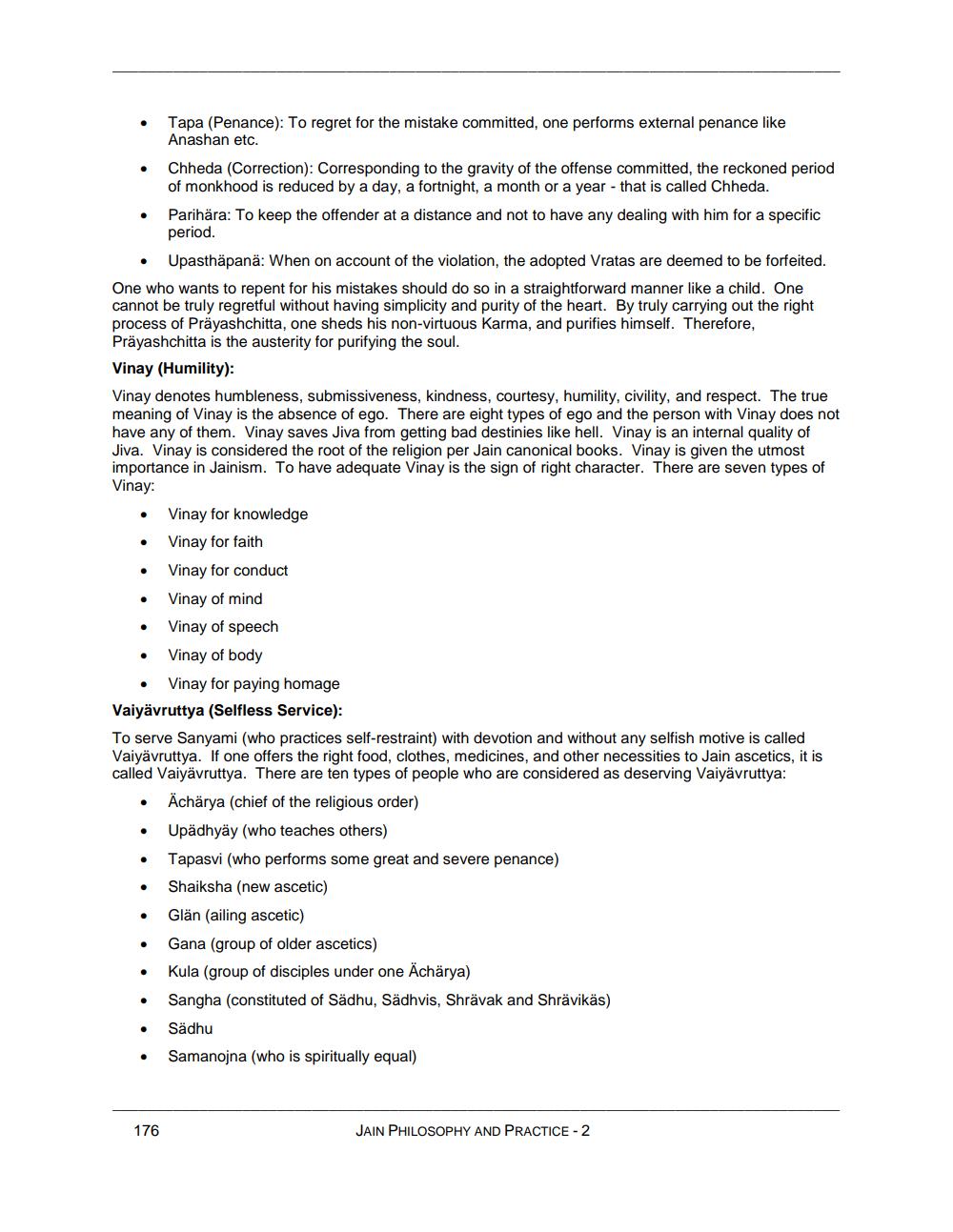________________
·
·
•
•
Upasthäpanä: When on account of the violation, the adopted Vratas are deemed to be forfeited. One who wants to repent for his mistakes should do so in a straightforward manner like a child. One cannot be truly regretful without having simplicity and purity of the heart. By truly carrying out the right process of Präyashchitta, one sheds his non-virtuous Karma, and purifies himself. Therefore, Präyashchitta is the austerity for purifying the soul.
Vinay (Humility):
Vinay denotes humbleness, submissiveness, kindness, courtesy, humility, civility, and respect. The true meaning of Vinay is the absence of ego. There are eight types of ego and the person with Vinay does not have any of them. Vinay saves Jiva from getting bad destinies like hell. Vinay is an internal quality of Jiva. Vinay is considered the root of the religion per Jain canonical books. Vinay is given the utmost importance in Jainism. To have adequate Vinay is the sign of right character. There are seven types of Vinay:
·
Vinay for knowledge
Vinay for faith
Vinay for conduct
Vinay of mind
Vinay of speech
Vinay of body
Vinay for paying homage
Valyävruttya (Selfless Service):
To serve Sanyami (who practices self-restraint) with devotion and without any selfish motive is called Vaiyävruttya. If one offers the right food, clothes, medicines, and other necessities to Jain ascetics, it is called Vaiyävruttya. There are ten types of people who are considered as deserving Vaiyävruttya:
Ächärya (chief of the religious order)
Upadhyay (who teaches others)
Tapasvi (who performs some great and severe penance)
Shaiksha (new ascetic)
•
•
•
•
•
·
•
•
Tapa (Penance): To regret for the mistake committed, one performs external penance like Anashan etc.
•
Chheda (Correction): Corresponding to the gravity of the offense committed, the reckoned period of monkhood is reduced by a day, a fortnight, a month or a year - that is called Chheda. Parihära: To keep the offender at a distance and not to have any dealing with him for a specific period.
•
176
Glän (ailing ascetic)
Gana (group of older ascetics)
Kula (group of disciples under one Ächärya)
Sangha (constituted of Sädhu, Sädhvis, Shrävak and Shrävikäs)
Sädhu
Samanojna (who is spiritually equal)
JAIN PHILOSOPHY AND PRACTICE - 2




